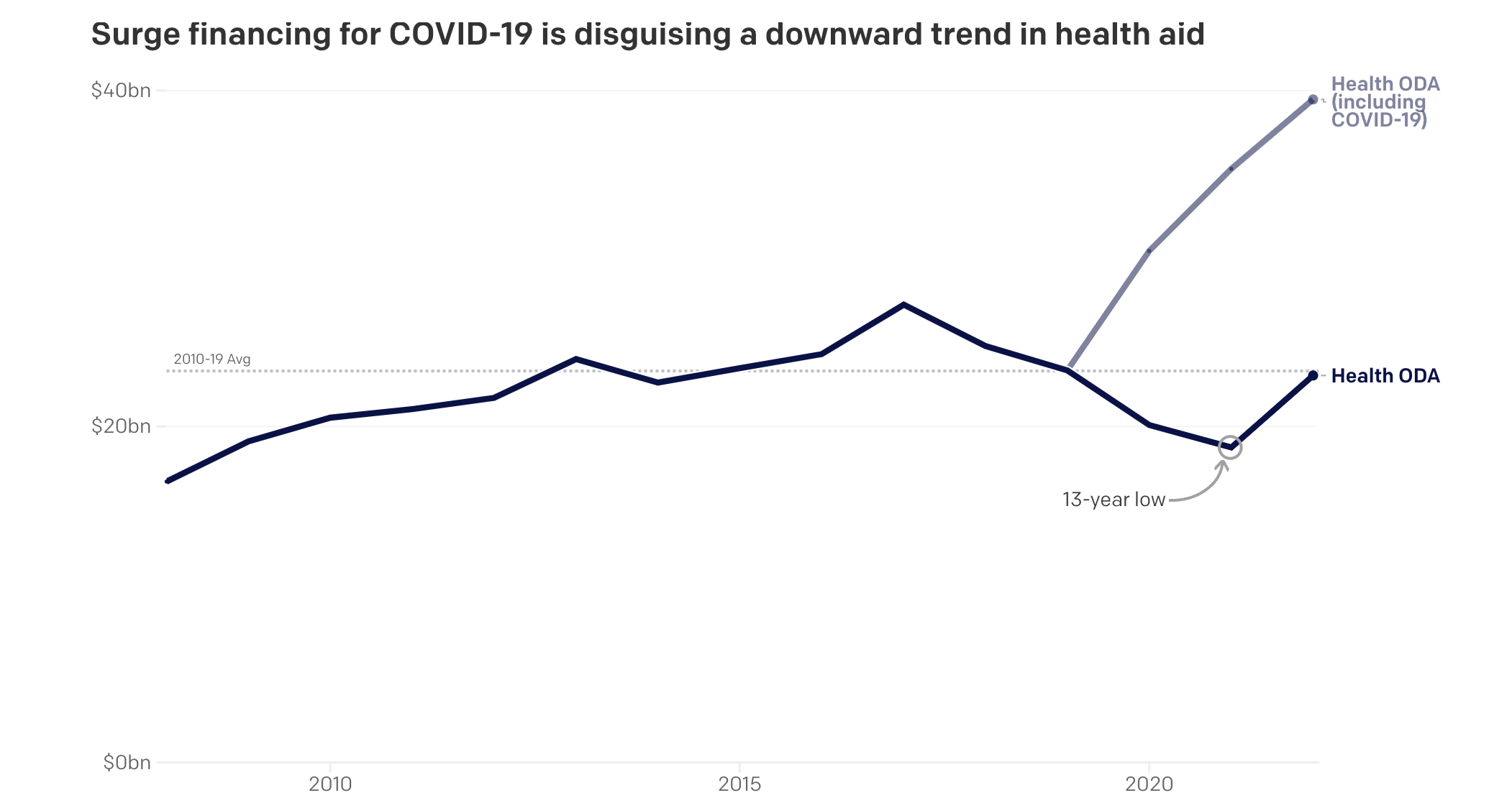An analysis from ONE.org reveals a troubling hidden trend in health aid. While surge financing for COVID-19 temporarily masked a decline in funding, official development assistance (ODA) for health reached a 13-year low in 2021 and only rebounded slightly in 2022. This decline poses a significant risk to global health gains.
During the pandemic, donor assistance for health surged to fortify health systems and improve access to essential tools. However, this surge came at the expense of other health priorities, as budgets were reshuffled rather than increased. As a result, funding for critical services like immunizations and maternal and child health has not returned to pre-pandemic levels for many major donors, including the UK, Canada, and the EU.
The consequences are dire: preventable diseases are on the rise, with malaria cases increasing since 2018 and millions of children missing routine vaccinations. The reliance on emergency funding is short-sighted; without consistent investments in health, countries risk undermining their resilience against future health emergencies.
Without urgent reprioritisation of health ODA in the post-COVID landscape, progress against preventable diseases is at risk of backsliding. Major economies must recommit to long-term, consistent funding to ensure that health systems are strengthened and ready to face future challenges, safeguarding the health and well-being of vulnerable populations worldwide.


